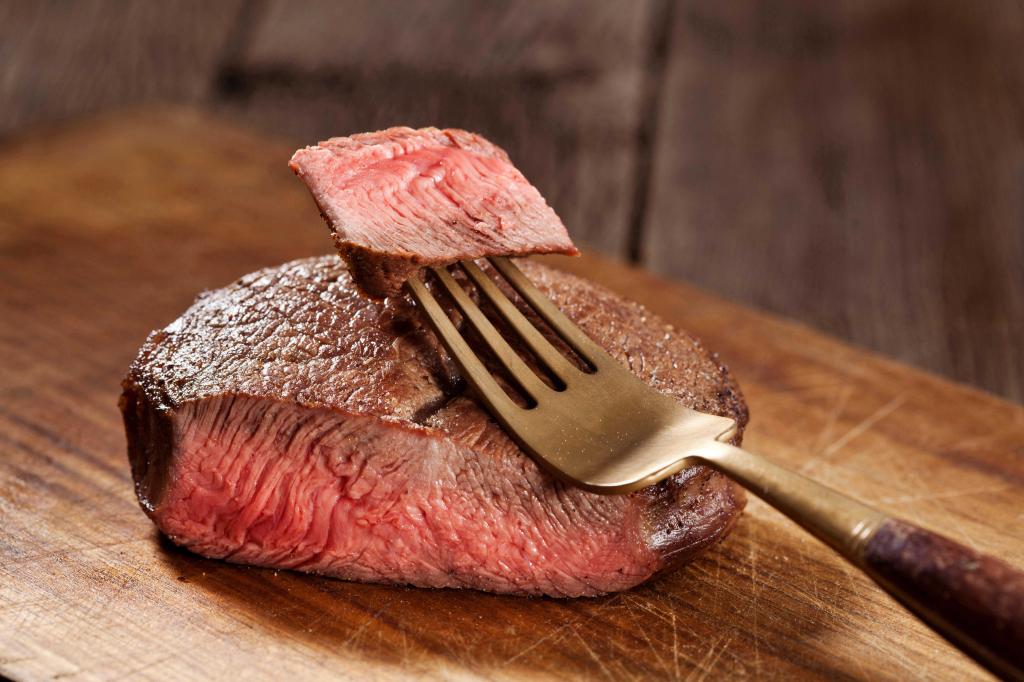The Carnivore Diet: Separating Fact from Fiction
The carnivore diet, a regimen consisting solely of animal products like meat, dairy, and eggs, has long been a topic of debate among health enthusiasts. While some swear by its benefits, others dismiss it as harmful or extreme. Recent discussions have been fueled by a video from Nick Norwitz, a Harvard medical student and researcher, who challenges eight common myths about the carnivore diet. Norwitz, who holds a PhD in metabolic health and is passionate about sharing scientific knowledge, presents evidence-based arguments to debunk these misconceptions. Here’s a breakdown of his findings, along with insights from other health experts.
Myth #1: There’s No Evidence for the Carnivore Diet
One of the most common criticisms of the carnivore diet is the lack of robust scientific evidence supporting its benefits. However, Norwitz points to several studies that suggest the diet can improve overall health and well-being. For example, a Harvard study involving over 2,000 participants reported high levels of satisfaction and improvements in various medical conditions. Norwitz also cites his own research, which indicates that the diet can alleviate symptoms of inflammatory bowel disease and restrictive eating disorders. While he admits that randomized controlled trials (RCTs) are still needed to fully validate the diet’s benefits, he argues that the existing evidence is promising and should not be dismissed.
Myth #2: The Diet Increases the Risk of Scurvy
Scurvy, a condition caused by severe vitamin C deficiency, is often cited as a potential risk of the carnivore diet. Norwitz acknowledges that it’s challenging to meet the recommended daily intake of vitamin C (75–90 mg) on a meat-only diet, as fresh, grass-fed beef contains only about 25 micrograms of vitamin C per gram. However, he counters that eating 2 pounds of meat daily could provide around 18 mg of vitamin C, which is still below the recommended amount but not necessarily enough to cause scurvy. Norwitz tested his own vitamin C levels after six months on the carnivore diet and found them to be normal, even slightly elevated. He explains that the human body is capable of maintaining vitamin C levels through efficient recycling, suggesting that scurvy is unlikely for most people on this diet.
Myth #3: The Lack of Fiber Will Cause Constipation
Another concern about the carnivore diet is that the absence of fiber will lead to constipation. While it’s true that fiber plays a role in promoting regular bowel movements, Norwitz argues that the small intestine absorbs most of the nutrients from meat, resulting in less fecal mass. However, he emphasizes that “you will still poop,” and some studies suggest that eliminating fiber can actually help manage conditions like irritable bowel syndrome with constipation. Norwitz adds that while fiber is important for a healthy microbiome, individuals vary in their needs, and some people thrive on low- or no-fiber diets. He believes it’s a matter of personal choice and not a universal rule.
Myth #4: The Diet Harms Athletic Performance
The idea that athletes need high carbohydrate intake to perform at their best is deeply ingrained in sports nutrition. Norwitz challenges this notion, arguing that the body adapts to a low-carb diet by increasing its ability to burn fat for energy. He cites a study of Ironman athletes that found no negative impact on performance when carbohydrates were restricted. Norwitz further explains the science behind this adaptation in his video, suggesting that a carnivore diet could be a viable option for athletes. Another doctor interviewed in the video agrees, providing additional insights into the relationship between diet and physical performance.
Myth #5: The Diet Will Lead to Heart Attacks
One of the most enduring myths about the carnivore diet is that it increases the risk of heart disease due to its high levels of saturated fat and cholesterol. Norwitz acknowledges that saturated fat can raise LDL (“bad”) cholesterol and ApoB, both of which are risk factors for heart disease. However, he notes that the extent of these changes varies widely among individuals. Some people may even see improvements in their cholesterol profiles. Norwitz also points out that heart disease is influenced by multiple factors, including visceral fat, insulin resistance, inflammation, and triglycerides, many of which can be positively impacted by a low-carb diet. While he doesn’t dismiss the potential risks, he encourages individuals to monitor their biomarkers and make informed decisions based on their personal health profiles.
Myth #6: The Carnivore Diet Is an Eating Disorder
Critics often label the carnivore diet as an eating disorder due to its restrictive nature. Norwitz argues that this label is unfair and misleading. He defines eating disorders as restrictive eating patterns that impair physical or mental health. On the contrary, he suggests that the carnivore diet has been life-changing for many people, helping them manage chronic conditions like obesity, diabetes, and inflammatory bowel disease. Norwitz proposes that the diet should be viewed as an “adaptive eating pattern” rather than a disorder. He also critiques the Standard American Diet (SAD), suggesting that its high sugar and processed food content could be seen as a form of disordered eating.
Myth #7: A Meat-Heavy Diet Is Bad for the Brain
Recent studies have suggested a link between red meat consumption and dementia, leading some to warn against a meat-heavy diet. Norwitz calls this conclusion misleading, pointing out flaws in the research. He explains that these studies often fail to differentiate between processed and unprocessed red meat, and they are subject to “healthy user bias.” For example, participants who ate more red meat were also more likely to smoke, have hypertension, or be less physically active—factors that could independently increase the risk of dementia. Norwitz notes that unprocessed red meat was not linked to cognitive decline in these studies, and he believes the dietary warnings against it are exaggerated.
Myth #8: The Carnivore Diet Is for Everyone
Norwitz is quick to clarify that the carnivore diet is not a one-size-fits-all solution. While it has been beneficial for some, he recognizes that it may not suit everyone. He emphasizes that the diet’s suitability depends on individual circumstances, such as health conditions, lifestyle, and personal preferences. Norwitz also acknowledges the value of plant-based diets, stating that fiber and vegetables are not inherently bad and that some people thrive on vegan or vegetarian diets. He calls for further scientific exploration of the carnivore diet but stresses the importance of context and nuance in dietary choices.
Expert Insights on the Carnivore Diet
Other health experts have weighed in on the carnivore diet, offering diverse perspectives. Dr. Marc Siegel, a clinical professor at NYU Langone Health, believes the diet can aid weight loss due to its high protein and fat content but warns that it may be unhealthy in the long term due to its high levels of saturated fat and cholesterol. He recommends the Mediterranean diet as a healthier alternative.
On the other hand, Dr. Georgia Ede, a Harvard-trained psychiatrist specializing in nutrition, has found the carnivore diet to be a valuable tool in her clinical practice. She believes it can help identify food sensitivities, resolve digestive issues, and even aid in weight loss. Ede argues that the hypothesis linking meat to poor health lacks strong evidence and that animal products are among the safest and most nutritious foods available. She acknowledges the challenges of adhering to the diet, such as social and logistical difficulties, but believes it can be healing for some individuals.
In conclusion, the carnivore diet is a controversial yet fascinating topic that continues to spark debate. While it may not be suitable for everyone, Norwitz and other experts provide compelling arguments against common misconceptions. As with any diet, the key is to approach it with an open mind, consider the evidence, and make informed decisions based on individual needs and preferences.












